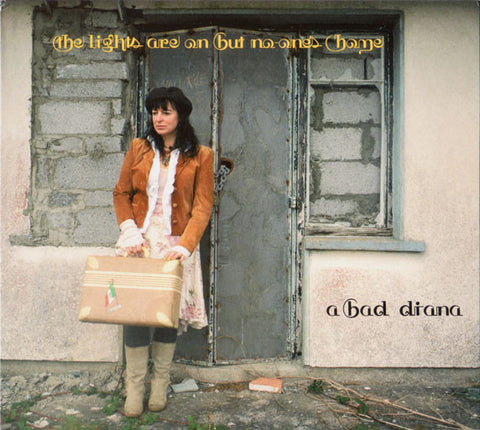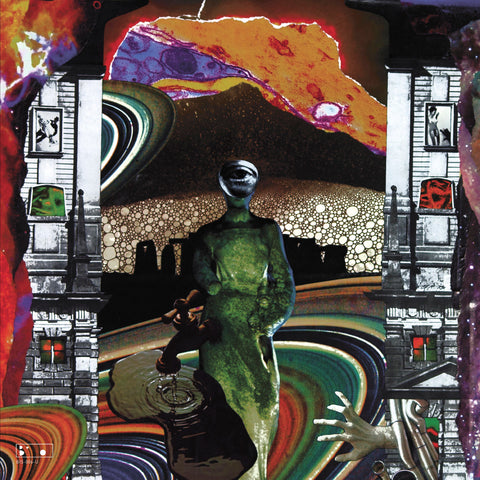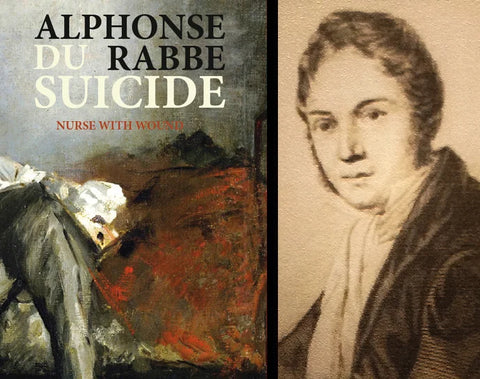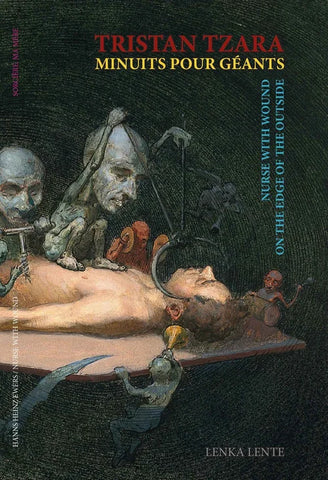
Nurse With Wound & Blind Cave Salamander "Cabbalism" 2CD LAST COPY!
LAST COPY!
November 2007,Venice. It was cold,damp and foggy. Nurse With Wound were playing 2 nights at the Teatro Fondamenta Nuove, with Blind Cave Salamander as support act. Listening to them perform, Steven Stapleton felt that some of what they played reminded him of the classic Nurse work, `Soliloquy for Lilith'. He suggested that the two bands should explore the possibility of playing live together, to explore that piece,with a view to recording an album. Forward to September 2009 when, after rehearsals, Nurse With Wound (Steven Stapleton and Colin Potter) and Blind Cave Salamander (Fabrizio Palumbo, Julia Kent and Paul Beauchamp) perform their live version of Soliloquy for the first time at the Mutamento Festival in Turin. The audience responded with great enthusiasm. The show was recorded and released as an LP back in 2012. The ensemble went on to play a number of other live shows and the music changed and mutated each time.
***REVIEW FROM BRAINWASHED 12.10.15*** This is an expanded reissue of a 2012 album that documented two 2009 live performances in which Nurse With Wound, Julia Kent, and Italy’s Blind Cave Salamander teamed up for an improbable variation/reinterpretation of NWW’s classic Soliloquy for Lilith album (an album that was largely the product of an unexpected and unrepeatable electromagnetic phenomenon). The expansion in question is a third performance in an identical vein to the previous two. Notably, however, that vein is not all that much like Soliloquy, which makes Cabbalism something separate and singular rather than just a mere live album. In fact, it does not even sound much like NWW at all, which I suppose makes this a very successful collaboration. While the third piece is not nearly divergent enough to warrant repurchasing the album for anyone who pounced on Cabbalism this first time around, the reissue is a very enticing package for those of us who unwisely slept on it.
It is easy to see why this project appealed to Steven Stapleton, as it is a fundamentally absurd and open-ended one. Given that the original Soliloquy was largely the inhuman work of a feedback loop of effects pedals and a helpful magnetic field, anything improvised by a group of musicians armed with guitars, violins, cellos, and a singing saw is inherently destined to be unrecognizably different right from the start. The sole apparent common ground between Cabbalism and Soliloquy is merely that there are some electronics making unpredictable sounds and that there is a similarly droning and hallucinatory aesthetic. In fact, the first time that I ever heard Cabbalism (without knowing the backstory), I immediately assumed that Stapleton and Colin Potter were just doing some live processing on a performance by an ethno-ambient drone ensemble. That is not the case at all, but if Stapleton sincerely set out to replicate the stark and alien beauty of Soliloquy, he was quickly buried under too many layers of other stuff to succeed.
In general, all three performances are built upon a low drone that is increasingly embellished with buzzing crests of electronics, swells of feedback, and ominous metallic washes that sound like processed cymbals. Unexpectedly, it is Julia Kent (apparently a member of Blind Cave Salamander at the time) who emerges as the most prominent and distinctive performer, as her mournful cello melodies give each its piece its own shape and feel. As a result, "Cabbalism I" is the strongest piece, as Kent opens up with a darkly melancholy melody and is given plenty of space to make her impact. In "Cabbalism II," she steps forward with an appealingly see-sawing motif, but she rarely lingers in the foreground at all in the new "Cabbalism III." Notably, however, the third version sounds a lot like the first version might after being sucked through a black hole or something: there are snatches of familiar melody, but they are considerably more subsumed by the simmering electronic chaos around them. That said, while Kent provides much of the structure and most of the album's "hooks," it is Paul Beauchamp's singing saw that seems to be the ensemble's apparent secret weapon, as the real pay-off for each piece is a passage where Cabbalism unexpectedly blossoms into an understated rapture of lilting, fluttering, and swooping notes. It's a lot like a fireworks display with no explosions at all, but an unexpectedly slow and beautiful descent of burning embers.
If Cabbalism has any significant flaws, they are highly subjective and mostly related to what it is not. For example, it is not Soliloquy for Lilith Redux nor does it particularly sound recognizably like anything that might have sprung from the mind of Steven Stapleton. Another potential issue is that the new inclusion of "Cabbalism III" does not add much to the album other than increased duration: it is now three very similar variations on a theme rather than just two. That should not come as a surprise though: if "Cabbalism III" were a masterpiece, Potter and Stapleton would obviously not have omitted it from the original release. That said, however, the added duration is actually quite welcome, as Cabbalism was already a deep and immersive experience and now it is even deeper and more immersive. As far as I am concerned, much more of a good thing is almost as satisfying as a better album might have been. More importantly, when stripped of any NWW-related expectations and taken solely on its own terms, Cabbalism is quite an excellent drone album: it may not nearly be as gleefully deranged and surrealistic as any of Stapleton's other recent work, but the consolation prize is that it is still a hell of a lot more complex, unconventional, and unpredictable than most similar fare. Anthony D'Amico




